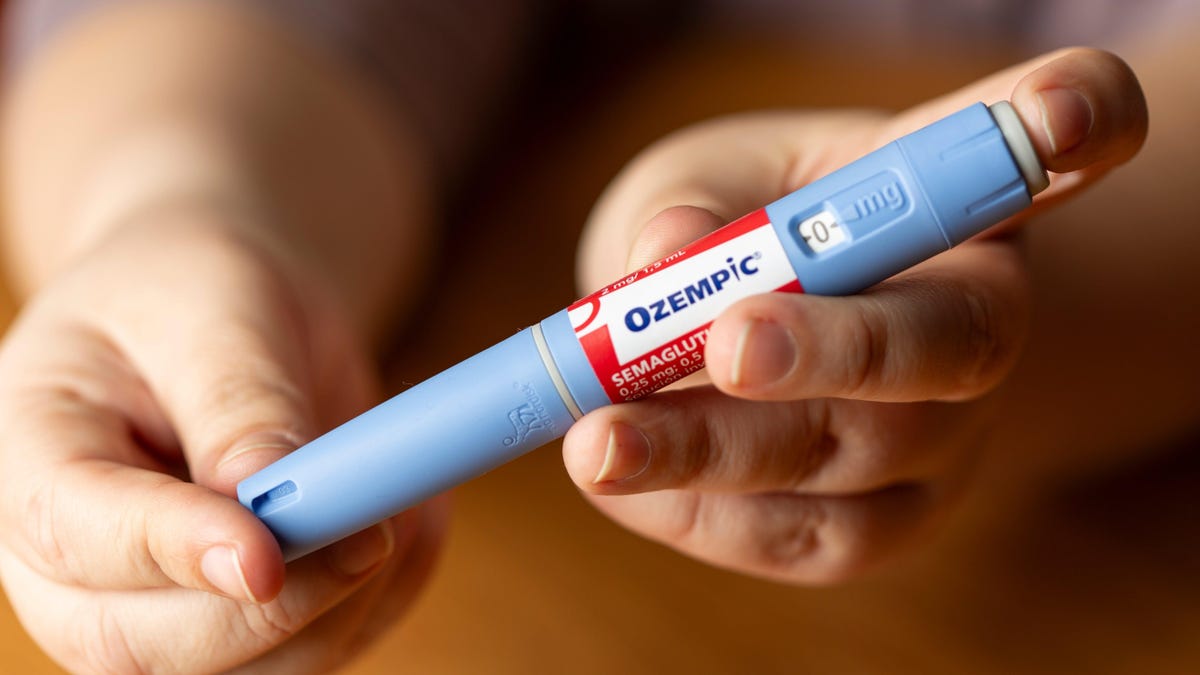
Another week, another study finding that Ozempic/Wegovy and similar drugs may do a lot more than just help people lose weight. New research has found that patients who start taking GLP-1 drugs are less likely to be diagnosed with depression and anxiety afterward, compared to similar patients not on the drug. The findings do not prove a cause-and-effect relationship, but provide further evidence that these drugs are not typically harmful to people’s mental health.
The study was conducted by scientists from health analytics organization Epic Research. The organization is an offshoot of Epic Systems, makers of software widely used by health care networks to create and maintain electronic medical records. Previous studies from Epic Research have tried to look into the real-world outcomes of GLP-1 drugs by analyzing Cosmos, a database representing over 200 million patient records collected from hospitals and doctors’ offices using Epic in the U.S. and Lebanon. Last month, for instance, Epic researchers found evidence that a slight majority of former GLP-1 users continue to maintain their weight loss up to a year after they stopped their medication.
Advertisement
In new research released this week, the group analyzed records from over four million patients who were prescribed one of several GLP-1 drugs currently on the market. This drug class has been used for over a decade to help manage type 2 diabetes, but the latest GLP-1 drugs (semaglutide and tirzepatide) have also proven to be much more effective at treating obesity than previous drugs and compared to diet and exercise alone.
Advertisement
The researchers compared these patients’ likelihood of later being diagnosed with depression and anxiety to control groups of similarly matched patients who were not prescribed GLP-1 drugs. They also looked at diabetic and nondiabetic patients separately.
Advertisement
Overall, they found that most GLP-1 drugs were associated with a lower risk of either condition across both groups. The only exception was liraglutide, which was associated with no increased risk of anxiety in either group and possibly a very small increase of depression in diabetic patients (1% higher). And the lowest associated risks were seen with the newest drugs on the market.
In diabetic patients, for instance, people taking tirzepatide (sold under the names Mounjaro and Zepbound) were around 60% less likely to be diagnosed with depression or anxiety than controls. And in non-diabetic patients, those taking semaglutide (Wegovy/Ozempic) were around 35% less likely to be diagnosed with either condition. Since the study only looked at data up to June 2023, before tirzepatide was approved for obesity that November, the authors could not look at the mental health outcomes of non-diabetics prescribed tirzepatide.
Advertisement
The findings have not been through the typical peer-review process, so they may need to be viewed with added caution. And these kinds of observational studies can only show a correlation between two factors, not causation. But they do line up with other research that has so far failed to find an increased risk of poorer mental health from these newer drugs, despite some initial concerns.
Last summer, health regulators in Europe began receiving reports of suicide and suicide ideation that might be tied to GLP-1 use, prompting an investigation into the possible link from countries around the world, including the U.S. Last month, however, the Food and Drug Administration reported that it had “not found evidence that use of these medicines causes suicidal thoughts or actions.” The FDA is still looking into the matter, and the verdict from other countries is likely to arrive soon. And it’s certainly possible that some people can develop mental health or other complications from taking GLP-1s.
Advertisement
But for now, the overall safety profile of these drugs appears to still be on solid ground.
Services Marketplace – Listings, Bookings & Reviews